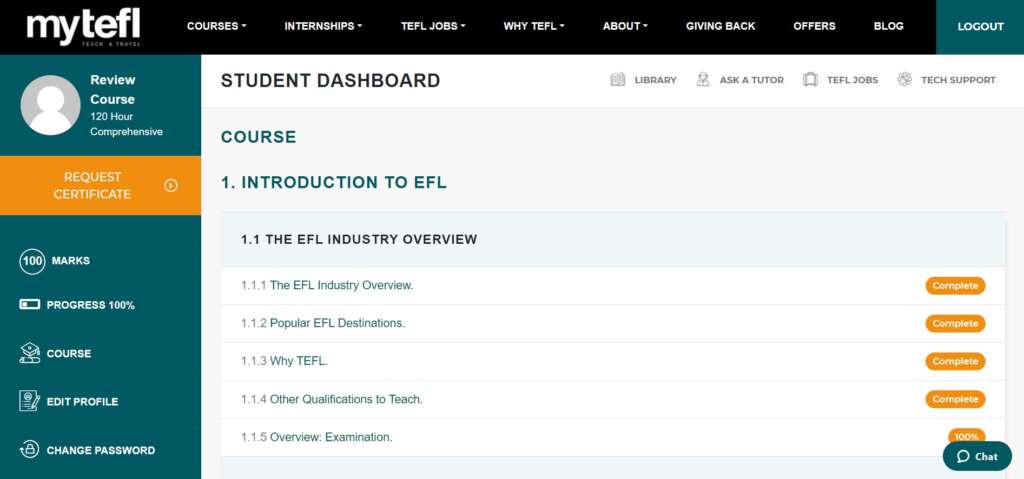Navigating the World of TEFL: Unveiling the Benefits of Completing a Certified TEFL Class Online
Before delving into the intricacies of online TEFL classes, it’s essential to build a comprehensive understanding of TEFL and its counterparts, such as TESOL, ESL, and other major language education variants. Teaching English as a Foreign Language (TEFL) is a specialized field dedicated to preparing educators with the skills, methodologies, and cultural sensitivity required for effective English language instruction to non-native speakers. A TEFL certification acts as a gateway to a multitude of global teaching opportunities, laying a robust foundation for individuals aspiring to make a significant impact in classrooms worldwide.
Comparatively, TESOL (Teaching English to Speakers of Other Languages) is a broader umbrella term that encompasses various approaches to English language education. TESOL includes TEFL but extends its scope to cover the instruction of English to non-native speakers in any setting, whether foreign or within an English-speaking community. ESL (English as a Second Language) is another term often used interchangeably with TESOL, referring to the teaching of English in regions where English is the dominant language, aiding individuals for whom English is a second language.
While TEFL specifically focuses on language education in foreign language contexts, TESOL and ESL embrace a more inclusive perspective, acknowledging the diverse environments in which English language instruction takes place. Understanding these distinctions provides prospective educators with clarity regarding the specific focus and applicability of each certification or teaching approach within the broader landscape of English language education.
In modern times, TEFL has become the more commonly used and recognized certification, reflecting the global nature of English language instruction. Both certifications, however, equip educators with the essential tools to teach English effectively to non-native speakers. The choice between TEFL and TESOL often comes down to personal preference, with the understanding that either qualification opens doors to diverse and rewarding teaching opportunities worldwide.
The Evolution of TEFL Classes – A Historical Perspective
The history of TEFL classes traces back to the mid-20th century when an increasing demand for English language instruction arose globally. As the world became more interconnected, the need for individuals proficient in English grew, leading to the development of formalized training programs for teachers.

In the early stages, TEFL classes were primarily conducted in-person, often as part of university programs. These courses focused on linguistic theories, teaching methodologies, and practical classroom experience. As the demand for English teachers expanded beyond traditional academic settings, the TEFL landscape witnessed a shift towards more specialized and accessible training.
The advent of the internet in the late 20th century revolutionized education, including TEFL. Online TEFL classes emerged as a response to the growing demand for flexibility and accessibility. The digital format allowed aspiring teachers from diverse backgrounds and locations to access high-quality TEFL programs.
Over the years, accredited online TEFL courses gained recognition, becoming a preferred choice for many aspiring educators. The evolution of TEFL classes reflects the dynamic nature of education, adapting to the needs of a globalized world.
Understanding TEFL
Before delving into the intricacies of online TEFL classes, let’s explore the multifaceted world of Teaching English as a Foreign Language (TEFL). TEFL is a specialized field of education designed to prepare individuals to teach English to non-native speakers in environments where English is not the primary language.
A comprehensive TEFL course typically covers a range of units, each focusing on key aspects of language teaching. These units usually include:
- Language Acquisition and Development: Understanding the process of language acquisition, including the stages of development and common challenges faced by language learners.
- Teaching Methodologies: Exploring various teaching methodologies, from traditional approaches to modern communicative methods, and how to adapt them to different learning environments.
- Lesson Planning: Developing practical skills in creating effective lesson plans that cater to the needs and proficiency levels of diverse learners.
- Classroom Management: Learning strategies for maintaining a positive and productive learning environment, including techniques for handling disruptions and engaging students.
- Assessment and Feedback: Understanding assessment tools, techniques for evaluating language proficiency, and providing constructive feedback to aid student improvement.
- Cultural Sensitivity: Recognizing and navigating cultural differences in the classroom, fostering an inclusive and respectful learning environment.

The duration of accredited TEFL courses can vary, but a standard certified TEFL course consists of 120 hours of instruction. This timeframe is considered comprehensive enough to cover the essential aspects of TEFL, including theory, practical skills, and teaching experience without overwhelming a new teacher. Some courses may offer additional hours for more in-depth study or practical teaching components, but these are usually unnecessary and offer little additional value. Further studies after a year or more of teaching experience would be more effective.
In essence, a TEFL certification acts as a passport to a world of teaching opportunities, equipping educators with the knowledge, skills, and cultural sensitivity required to make a meaningful impact in classrooms globally. Whether teaching abroad or in an English as a Foreign Language (EFL) setting, a solid foundation in TEFL is the key to unlocking a fulfilling and impactful teaching career.
The Importance of TEFL Certification
Global Opportunities
A TEFL certification serves as a critical credential that opens doors to a diverse array of teaching opportunities globally. In recognition of the paramount importance of English proficiency in today’s interconnected world, an increasing number of countries are placing greater emphasis on the qualifications of English educators. Holding a recognized TEFL certificate is not merely a recommendation but often a requirement in the competitive landscape of international education.
This certification can be likened to a golden ticket, unlocking access to a plethora of teaching prospects in various corners of the globe. Educational institutions, language schools, and programs worldwide seek educators who have undergone rigorous TEFL training, ensuring that they possess the necessary skills to deliver effective English language instruction. It acts as a testament to a teacher’s commitment to professional development and their dedication to delivering high-quality education.
Moreover, the TEFL certification functions as a universal passport for educators, allowing them to traverse geographical boundaries with confidence. Whether aspiring teachers dream of immersing themselves in the rich cultural tapestry of Asia, exploring the historic landscapes of Europe, or contributing to educational initiatives in diverse regions, the TEFL certification paves the way for fulfilling international teaching adventures.
In essence, this certification is more than a qualification; it’s a gateway to a global community of educators who share a passion for language education and cultural exchange. Armed with a TEFL certificate, teachers become part of an interconnected network, contributing to the dissemination of English language skills and fostering cross-cultural understanding on a global scale.

Competitive Advantage
In today’s fiercely competitive job market, a TEFL certification is a powerful asset that significantly enhances your professional profile. Employers across various educational settings, including schools, language centers, and online platforms, increasingly prioritize candidates who have completed formal TEFL training. This certification is not just a checkbox; it’s a marker of your dedication to excellence in language education and your commitment to continuous professional development.

Possessing a certified TEFL qualification sets you apart from the competition by demonstrating a comprehensive understanding of effective teaching methodologies and classroom management techniques. Employers value the practical skills and theoretical knowledge acquired during TEFL training, recognizing that certified teachers are equipped to deliver high-quality English language instruction.
The TEFL certification, therefore, becomes a key differentiator in the hiring process, signaling to employers that you have undergone rigorous training to meet industry standards. It showcases your ability to create engaging lesson plans, adapt to diverse learning environments, and foster positive student engagement.
Moreover, the commitment to earning a TEFL qualification reflects your proactive approach to professional development. In a dynamic educational landscape, where language teaching methodologies evolve, the TEFL certification ensures that you stay abreast of the latest trends and best practices in the field. Employers appreciate candidates who not only have foundational knowledge but also show a commitment to staying informed and continually refining their teaching skills.
Effective Teaching Skills
TEFL courses offer a holistic approach to teacher training, extending beyond theoretical concepts to immerse educators in the practical intricacies of teaching English as a foreign language. The curriculum is designed to equip teachers with a diverse set of skills, fostering their ability to create dynamic and engaging lessons while cultivating a positive and inclusive learning environment.
One core area of focus in TEFL courses is effective lesson planning. Teachers learn to craft well-structured and goal-oriented lesson plans that cater to the linguistic needs of diverse learners. This practical skill ensures that educators can seamlessly navigate through different aspects of language instruction, from introducing new vocabulary to implementing interactive activities that reinforce language acquisition.
Classroom management techniques constitute another vital component of TEFL training. Educators delve into strategies for maintaining a positive and productive classroom atmosphere. This includes guidance on handling diverse student needs, addressing behavioral challenges, and fostering an inclusive environment that encourages active participation.
Moreover, TEFL courses emphasize the integration of technology and multimedia resources to enhance teaching effectiveness. Teachers gain insights into incorporating audiovisual materials, interactive tools, and digital platforms to create dynamic and engaging lessons. This practical exposure ensures that educators are well-prepared to adapt to the evolving landscape of modern language instruction.
The hands-on nature of TEFL training often includes opportunities for real-world teaching experience. Whether through practicum assignments, virtual classrooms, or teaching practicums, educators get a chance to apply theoretical knowledge in actual teaching scenarios. This experiential learning component is invaluable, bridging the gap between theory and practice and instilling confidence in teachers to navigate the challenges of real classrooms.
Online TEFL Classes
Flexibility and Convenience
Online TEFL classes offer unparalleled flexibility and convenience, making them an ideal choice for individuals with busy lifestyles. The asynchronous nature of these courses allows participants to tailor their study schedules, accommodating those who may be working or studying concurrently. This adaptability empowers learners to engage with course materials at their own pace, without the constraints of a rigid timetable.
The absence of physical classroom requirements means that aspiring educators can access online TEFL programs from anywhere with an internet connection. This eliminates geographical barriers, making quality TEFL certification accessible to individuals worldwide. Whether from the comfort of their homes or on the go, participants can seamlessly integrate their TEFL training into their daily lives.
One of the key advantages of online TEFL classes is the 24/7 availability of course materials and resources. Learners can revisit content as needed, reinforcing understanding and accommodating different learning styles. This constant accessibility ensures that participants can grasp essential concepts at their convenience, contributing to a more personalized and effective educational experience.
Accessibility
Online TEFL courses dismantle geographical barriers, providing unparalleled accessibility to high-quality programs from any corner of the globe. Prospective teachers no longer face the need for costly and time-consuming relocations associated with traditional in-person training. This global accessibility empowers individuals, regardless of their location, to embark on their TEFL journey seamlessly.
The convenience of online courses allows participants to engage in TEFL training without the constraints of physical proximity to educational institutions. This not only expands opportunities for aspiring educators but also promotes cultural diversity within the virtual learning community. By breaking down the geographical barrier, online TEFL courses create a dynamic and inclusive space where individuals from various backgrounds can connect, collaborate, and learn together.
In essence, the accessibility of online TEFL courses transcends borders, opening doors to a diverse pool of participants eager to acquire essential teaching skills. The elimination of geographical constraints marks a significant shift in the landscape of teacher training, making quality TEFL education accessible to a global audience.
The Rise of Certified TEFL Courses Online
Accreditation Matters
When initiating the path towards obtaining online TEFL certification, it is crucial to select programs that undergo rigorous accreditation processes administered by recognized organizations. Choose courses that highlight accreditation by independent third-party entities, indicating a commitment to maintaining high-quality educational standards and adherence to industry benchmarks.
Accreditation is a meticulous and impartial evaluation process conducted by external bodies that specialize in assessing the quality and effectiveness of educational programs. These accrediting organizations often employ experienced professionals and experts in the field of English language teaching to ensure that the TEFL courses meet or exceed industry standards.
During the accreditation process, a TEFL program’s curriculum, instructional methods, assessment procedures, and overall educational quality are thoroughly scrutinized. This comprehensive evaluation aims to verify that the program provides a robust and effective learning experience for aspiring educators. The accreditation process typically involves an in-depth examination of the course materials, faculty qualifications, and the institution’s commitment to continuous improvement.
Furthermore, accreditation is not a one-time event but an ongoing commitment to quality assurance. Accredited TEFL programs often undergo periodic reviews and evaluations to maintain their accredited status. This continuous scrutiny ensures that the program evolves in response to advancements in the field of English language teaching, educational research, and changes in global language learning trends.
Choosing a TEFL program accredited by independent third-party entities is a strategic decision to guarantee that the certification obtained at the end of the course holds merit and is widely recognized within the educational community. This commitment to external validation reflects the program’s dedication to delivering a TEFL education that meets the highest standards, providing graduates with a credible and reputable certification for their teaching endeavors.
Comprehensive Curriculum
A well-crafted TEFL course online should encompass a comprehensive curriculum, ensuring that aspiring educators are equipped with a diverse skill set to thrive in the dynamic world of English language teaching.
The curriculum should delve into the intricacies of lesson planning, empowering participants to structure engaging lessons and adapt to various teaching scenarios. A strong emphasis on grammar instruction is essential, providing a deep understanding of English grammar rules and the ability to convey these concepts effectively to language learners.
Cultural sensitivity training is another crucial component, offering insights into cross-cultural communication and fostering an inclusive teaching approach. Aspiring teachers should gain practical experience through teaching practicums or virtual classrooms, allowing them to apply theoretical knowledge in real-world scenarios and refine their pedagogical skills.

Furthermore, a quality TEFL curriculum integrates interactive learning tools, such as multimedia presentations and live sessions, enhancing the overall learning experience. This combination of theoretical depth, practical experience, and interactive elements ensures that graduates are well-prepared to navigate the complexities of English language teaching with confidence and proficiency.
TEFL classes often cover a broad spectrum of study areas, addressing the various facets of language teaching including:
- Grammar and Linguistics: A deep dive into English grammar rules and linguistic principles to equip educators with a solid understanding of the language.
- Phonetics and Pronunciation: Exploring the sounds of the English language, with a focus on phonetic symbols and strategies for teaching correct pronunciation.
- Materials and Resources: Identifying and creating effective teaching materials, including textbooks, multimedia resources, and supplementary materials.
- Technology in the Classroom: Integrating technology tools and resources to enhance language teaching, especially relevant in the context of online and blended learning environments.
- Teaching Methodologies: Encompass a diverse range of instructional strategies and approaches, equipping educators with the tools to adapt their teaching styles to the unique needs and learning preferences of their students.
Other Key Considerations for Choosing an Online TEFL Class
Course Duration and Structure
When choosing an online TEFL course, it’s crucial to consider the duration and structure for a well-rounded learning experience. The ideal program achieves a balance between theoretical content, practical exercises, and assessments, ensuring a comprehensive understanding of English language teaching.
Theoretical content lays the foundation, covering key concepts like language acquisition, teaching methodologies, and classroom management. Practical exercises provide hands-on experience, allowing learners to apply theoretical knowledge in simulated or real teaching settings. Assessments, including quizzes and assignments, gauge the learner’s readiness for a teaching career.
A well-structured program sequences content logically, building on foundational concepts and progressively introducing more advanced topics. This approach aids knowledge retention, preparing learners for the varied demands of English language teaching. Ultimately, thoughtful design in online TEFL courses ensures a holistic and effective learning journey.
Support and Resources
When selecting an online TEFL course, prioritize those that provide continuous support, offering valuable resources, teaching materials, and lesson plans. A supportive environment, complemented by tutor assistance, is indispensable for success in online learning.
A well-structured course ensures that learners have access to a rich repository of teaching materials and lesson plans, facilitating lesson preparation and execution. The availability of tutor support further enhances the learning experience. Tutors, often experienced EFL educators, are invaluable resources for clarifying doubts, providing feedback on assignments, and offering guidance on effective teaching strategies.

Job Placement Assistance
While pursuing an online TEFL program, it’s advantageous to opt for courses that go the extra mile by providing job placement assistance. This added support can prove invaluable during the crucial phase of transitioning from completing the TEFL course to actively securing a teaching position.
Job placement assistance encompasses a range of services designed to guide graduates through the job-seeking process. This may include assistance with resume building, interview preparation, and access to a network of potential employers. It’s essential to scrutinize the nature of the job placement support offered by different TEFL providers.
Some TEFL programs merely provide links to job boards or lists of potential employers, leaving the onus on graduates to navigate the job market independently. In contrast, more proactive programs actively engage with employers, maintain partnerships with educational institutions worldwide, and facilitate direct connections between graduates and hiring entities. Aspiring TEFL educators should carefully assess the extent and effectiveness of job placement support to ensure they receive genuine assistance in securing rewarding teaching positions post-certification.
Provider’s Credibility and Longevity
Consider the credibility and longevity of the TEFL provider. The proliferation of fly-by-night TEFL class providers in recent years, enticed by the allure of easy money, emphasizes the need to be cautious. Be wary of organizations with less than five years of experience. A provider with a longer track record not only signifies stability but also suggests a commitment to quality and a history of successfully preparing educators for the global classroom. Longevity in the industry is often a testament to a provider’s dedication to excellence and the success of its graduates. When investing in your TEFL certification, choose a provider with a proven track record to ensure a reliable and reputable educational experience.
Conclusion
Completing an accredited TEFL course online unfolds a world of possibilities for aspiring English teachers. The flexibility, accessibility, and comprehensive education provided by online programs make them an attractive and viable option for individuals from all walks of life. As the demand for English language education continues to soar globally, investing in an accredited TEFL course online not only equips you with the necessary skills but also empowers you to embark on a rewarding global teaching journey. Whether you’re a recent graduate, a career switcher, or an experienced educator seeking new horizons, an accredited TEFL course online paves the way for a fulfilling and impactful teaching career.

